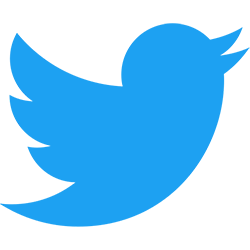Follow Us x
Imagine there is only one restaurant in a town of people that can't cook. It is always crowded with chatty people, hungry for the food they are incapable of preparing themselves. Though everyone in town is a patron of this restaurant, there is no menu for them to choose from. The chef decides which meals to serve the customers and which ingredients to include or exclude in a recipe. Everyone in the restaurant is served the same meal and everyone leaves satisfied, as the townspeople are happy to have been fed at all.
This is how media worked less than a century ago. The general public had to rely on professionals and news giants-- our "chefs"-- to relay the important information (ingredients). There wasn't much of an option to fact-check. It was a one-way relationship, where the public had to fully rely on those in a position of power to get information: the public was unable to go into the metaphorical kitchen.
The door to this kitchen is now wide open. Technological developments have not only provided a multitude of sources to receive information from, but a way for the public to share the power and critique media.
But, none of this is new information. So why bring it up?
Because public engagement is a tool, not an enemy.
Social media and access to the internet provide an opportunity to build a stronger, more personal relationship with radio consumers. The meaning of radio and its presence in day-to-day life needs to be ever-evolving to stay relevant. People are used to listening to the radio; now, it's radio's turn to listen to the people.
Jeff Sanders, founder of Station Domination Radio Consulting Group, likes to hone in on what he calls the Station Domination Listener Loop™ in which radio listeners are redirected to the station's website or social media, then back to the broadcast, and so on. For example, a station may announce a giveaway on the air. The listener then has to go to the website to enter the contest, and later tune back in to the station's broadcast to hear the winner announced.
This tactic provides consumers with additional points of contact. It creates an active, rather than passive, audience and establishes a sense of community. An engaged audience is one that a relationship can grow from. As working remotely becomes the new norm, this is the perfect opportunity for radio to solidify its place in the home.
The ongoing War on Media makes it even more crucial to build that trust with your audience. Individual listeners should feel like the station they listen to knows their name. They should feel like they know the on-air personalities in the same way they know an entertaining co-worker. People prefer people over companies, and that's how your station should be viewed: as a friend with the listener's best interest in mind.
Comments or thoughts? Contact Jeff Sanders by calling Station Domination Radio Consulting Group at 704-234-8564, or by E-Mail at Sanders@StationDomination.com.




